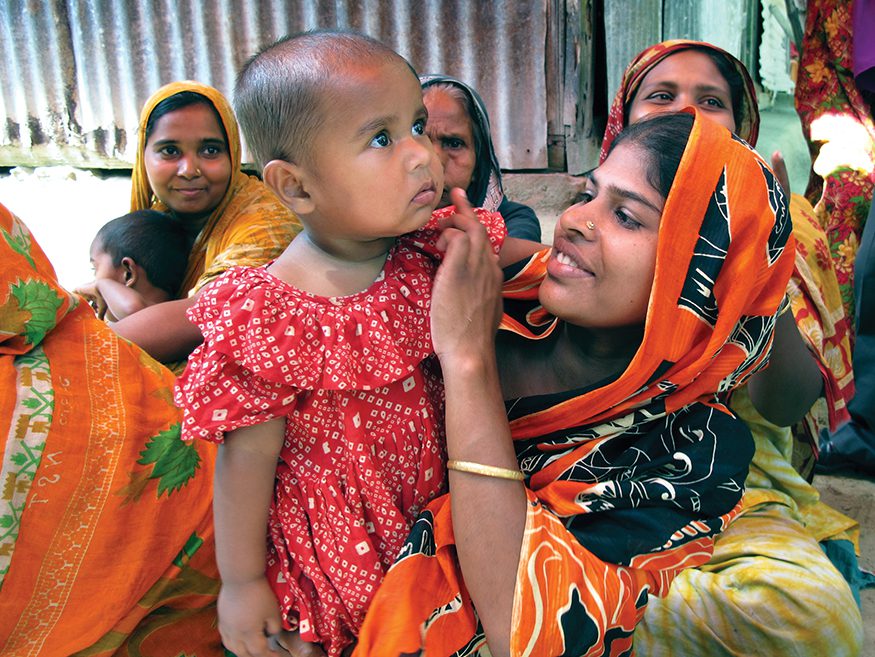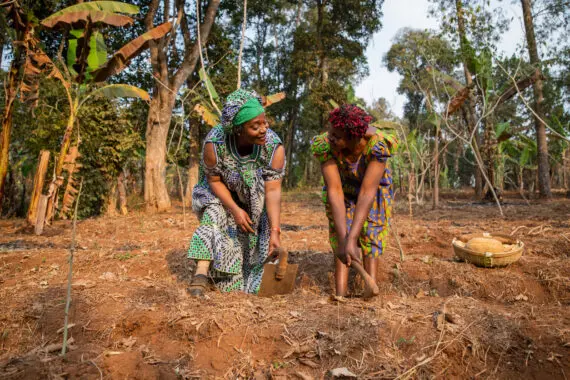By Jordan Teague
The past month has been an exciting one for global food security!
At the U.N. Food Systems Summit on September 23, the U.S. government pledged to continue its investment in Feed the Future, the signature U.S. global food security initiative, at a level of $1 billion annually for the next five years.
How will these resources be used? Here’s an example: Feed the Future will support a $38 million initiative to expand food fortification in low- and middle-income countries. Food fortification is a direct means of boosting the nutritional content of commonly consumed foods. In the United States, adding iodine to salt and fortifying milk with Vitamin D are among the best-known examples. Another initiative will allocate $60 million in research grants for specialists to develop and improve strategy options to reduce food loss and food waste.
Bread for the World members have faithfully supported Feed the Future since its creation in 2009. Feed the Future is the U.S. portion of a major global food security commitment, made that year as a response to the 2008 food price crisis. This sudden-onset economic disaster drove tens of millions of additional people into hunger as prices for staples such as rice suddenly spiked to double or triple their previous levels.
Bread has also played a significant role in ensuring that nutrition remains a top priority within Feed the Future programs. We are excited about Feed the Future’s next five years of progress in elevating the critical importance of nutrition. These commitments are essential to continuing the U.S. leadership role in ending global hunger.
Bread for the World has long maintained that ending malnutrition requires both emergency humanitarian responses—most importantly, treating young children whose lives are in immediate danger from Severe Acute Malnutrition—and sustained longer-term support for national-level plans to identify solutions that will be effective in local contexts to help resolve the main causes of malnutrition. The COVID-19 pandemic has only made the situation more urgent, causing significant damage to both health systems and food systems around the world. In low- and middle-income countries, malnutrition among young children has soared.
The United States should support partner countries in strengthening their capacity to improve nutrition using a comprehensive, holistic approach. This should be done through a coordinated strategy, dedicated to addressing malnutrition, which has support at the highest levels of government and also focuses on both health and food factors. To have the needed impact, this holistic approach must be combined with increased funding for nutrition in lower-income countries.
Nourish the Future is a proposal to scale up a comprehensive approach in order to make faster progress against global malnutrition. As we’ve discussed, Nourish the Future recognizes health and food systems as the two main vehicles for combating malnutrition. It offers a strategy to strengthen and integrate programs that currently sometimes work separately, in “silos,” into partnership with country governments, affected communities, and local and international organizations. Nourish the Future would also increase U.S. government investments in global nutrition. Bread encourages the U.S. government to adopt Nourish the Future in this critical year of action for nutrition.
The President’s Emergency Plan for AIDS Relief (PEPFAR) was created at a time when HIV/AIDS was surging in dozens of African countries and truly effective medications were becoming available. It offers insights that may help in ramping up sustainable solutions to global malnutrition. PEPFAR is credited with saving the lives of millions of people—most in their prime working and parenting years—through its prevention and treatment programs. PEPFAR was also a groundbreaking example of why both food and health factors are important. The nutrition components of the program were significantly expanded once health workers saw that antiretroviral medications were simply less effective for people who were malnourished.
Next week, on October 20, Bread for the World will co-host a webinar with our partners, the Alliance to End Hunger and 1,000 Days, as part of the 2021 Norman E. Borlaug International Dialogue. Many events have been scheduled to complement the celebration of World Food Day on October 16. We invite you to join us to learn more about global malnutrition during the COVID-19 pandemic, the need for a more comprehensive approach that will enable swifter progress against malnutrition, and Nourish the Future. Register here for the webinar. See you there!
Jordan Teague is interim director, Policy Analysis & Coalition Building, with Bread for the World.



